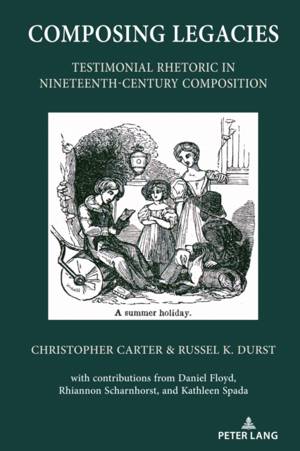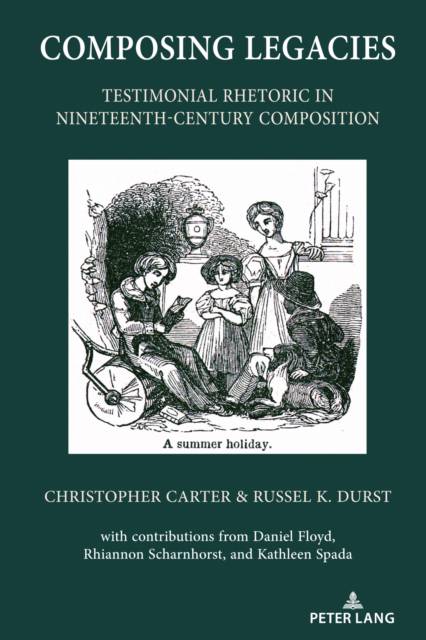
Bedankt voor het vertrouwen het afgelopen jaar! Om jou te bedanken bieden we GRATIS verzending (in België) aan op alles gedurende de hele maand januari.
- Afhalen na 1 uur in een winkel met voorraad
- In januari gratis thuislevering in België
- Ruim aanbod met 7 miljoen producten
Bedankt voor het vertrouwen het afgelopen jaar! Om jou te bedanken bieden we GRATIS verzending (in België) aan op alles gedurende de hele maand januari.
- Afhalen na 1 uur in een winkel met voorraad
- In januari gratis thuislevering in België
- Ruim aanbod met 7 miljoen producten
Zoeken
Composing Legacies
Testimonial Rhetoric in Nineteenth-Century Composition
Christopher Carter, Russel K Durst
€ 157,45
+ 314 punten
Omschrijving
In 2015, Professor Emerita Lucille M. Schultz donated to the University of Cincinnati her set of composition materials gathered from fifteen libraries and collections around the country. With 350 entries ranging from 1785 to 1916, the collection includes picture books for early primary schools, grammar textbooks, student writing, and advanced rhetoric textbooks for undergraduates. The documents afford a thrilling glimpse into nineteenth-century ways of thinking and teaching, highlighting practices we would today identify as prewriting, collaborative invention, freewriting, and object-oriented pedagogy. Composing Legacies relates these pedagogies to expressions of social class, nationalism, and public engagement that run throughout the Victorian era and the Gilded Age. Early chapters show how writing and grammar handbooks aimed to reproduce social hierarchies; later ones show how textbook authors aimed to mitigate lecture-style pedagogy with attention to student backgrounds, personal interests, economic aspirations, and presumed audiences. Often, those authors demonstrated a pronounced interest in national unity, but not without exception. Little-known Confederate textbooks took the ideology of unity to be a form of Northern aggression, promoting the maintenance of state and local traditions through their classroom exercises and sample passages. Composition scholars who see the nineteenth-century as a period of skills-and-drills teaching, devoid of explicit political concern, will find surprises in the archival texts' testimonies about national crises and civic participation. Those scholars will also find that the "social turn" in writing and rhetoric, however recent as a historical framework, has been underway for more than two hundred years.
Specificaties
Betrokkenen
- Auteur(s):
- Uitgeverij:
Inhoud
- Aantal bladzijden:
- 182
- Taal:
- Engels
- Reeks:
- Reeksnummer:
- nr. 15
Eigenschappen
- Productcode (EAN):
- 9781433180453
- Verschijningsdatum:
- 15/06/2021
- Uitvoering:
- Hardcover
- Formaat:
- Ongenaaid / garenloos gebonden
- Afmetingen:
- 152 mm x 229 mm
- Gewicht:
- 430 g

Alleen bij Standaard Boekhandel
+ 314 punten op je klantenkaart van Standaard Boekhandel
Beoordelingen
We publiceren alleen reviews die voldoen aan de voorwaarden voor reviews. Bekijk onze voorwaarden voor reviews.









